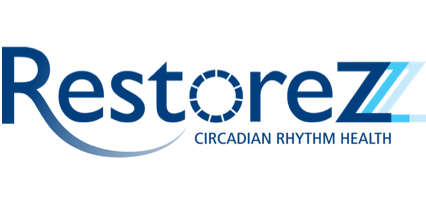
Q: Is coffee bad, just okay, or actually beneficial? It makes me feel jittery, so I want to stop drinking it. What can I use to avoid withdrawal symptoms? —Jim P., San Jose, Calif.
A: The quick answer is that as a drug caffeine is better than most. However, it’s a pretty miserable choice for a beverage. Caffeine is found not only in coffee, but in black teas, chocolate, carbonated soft drinks, and even herbal “energy boosters” that contain guarana.
Caffeine Concerns

Caffeine is extremely vasoconstricting, meaning that it narrows the blood vessels—especially the tiny ones found in the brain, kidneys, retina, and extremities—thus inhibiting optimal blood flow and oxygen delivery to the body’s tissues. Caffeine can cause a short-term decrease in insulin sensitivity (although moderate coffee consumption is associated with a reduced risk of developing diabetes). And consuming caffeine along with carbohydrate-rich foods can raise blood sugar levels more than consuming carbs alone.
Much of what we know about caffeine comes from early military research on stimulants purported to increase mental energy and stamina despite sleep deprivation and extreme environments. And in the case of mental energy, caffeine most definitely works. Because it constricts blood vessels in the brain, caffeine throws the brain into overdrive, which sends a signal to your adrenal glands to produce adrenaline, which starts a fight-or-flight cascade. This is why caffeine gives folks a jolt, or even the jitters.
Most people can handle these effects in the short-term. But long-term, day
after day, ingesting caffeine is like “whipping a tired horse.” Your blood pressure goes up, your cholesterol goes up, your risk for osteoporosis increases, and your blood sugar control is compromised. Plus, caffeine is extremely dehydrating. This is because it’s basically poisonous to the body, so we’ll dump all available fluid into the intestinal tract to dilute it before it hits the bloodstream.
Research on coffee does come up with some positives, but this has nothing to do with caffeine. Coffee’s benefits are partly due to the antioxidant content of the beans.
If you’re thinking about giving up your morning brew, you will likely get withdrawal headaches (from the rebound vasodilation—too much blood flow to the brain as the vasoconstricting effect wears off) for 3–10 days. During this time, stay extra-hydrated with water (the best drink), herbal teas, and bone broths, ideally homemade. You can also chew on mint leaves, suck on ginger root, sprinkle cayenne pepper on everything (1/8 tsp. max per drink or meal serving), exercise more, or lie down in a dark room with an ice pack wrapped in a towel under the back of your neck. Here are some more tips to help you kick the caffeine habit.
Did You Know?
Coffee’s purported health benefits come from its antioxidant content, not its caffeine.
Take Your Vitamins
B vitamins are wonderful for nourishing jangled nerves, so try taking a quality B complex supplement with 1,000 mcg of methylated B (methylcobalamin) and about 50 mg each of the other numbered, water-soluble Bs. Take it twice daily, with food, but not after 4 p.m. Some folks find B vitamins to be overstimulating when taken too close to bedtime.
Choline, lecithin, and inositol (all “fatty” B vitamins) are also very helpful. I like to put a heaping tablespoon of lecithin on steel-cut oats, and add some nuts, seeds, and rehydrated dry fruit (raisins, cranberries, apricots) for a nerve-soothing and filling breakfast.
Vitamin E is very supportive to the endocrine system, and most useful in the 400–800 IU range, especially if you are over age 40. The nervous system is connected to the endocrine system most vividly in the stress response, so both nerve and hormonal support will help you transition off caffeine.
Try Tea
My favorite herbal tea when you’re quitting caffeine is chamomile. Contrary to popular belief, strongly brewed chamomile is actually a mild stimulant (as opposed to weakly brewed chamomile, which helps us relax at bedtime). So make a strong pot in the morning (5 teabags to 4 cups of hot water), put it into a thermos, and sip throughout the day. Chamomile is also an amazing nerve-nourishing plant that can relieve the drowsiness and shakiness that usually accompanies caffeine withdrawal.
Healthy Tip!
If you miss the “ritual” of morning coffee, a robust herbal tea can be equally satisfying.
Focus on Fiber
Caffeine withdrawal headaches are caused mostly by vasodilation, but they can also be exacerbated by reabsorption of toxins if caffeine withdrawal causes constipation. So it’s important to eat plenty of fiber-rich vegetables and fruits, along with whole grains and high-quality cold-pressed oils. Be sure to drink at least 8 cups of water daily. And use a light Senna-based herbal laxative if needed.
Moving Forward
Once you’ve kicked your habit, it may be possible to use caffeine very occasionally—if, say, you need to drive when tired or study for an exam. But remember that gentler methods of maintaining good energy levels—such as getting enough sleep—are always preferable. And if you find that you miss the “ritual” of the morning coffee, be assured that a robust herbal tea, such as Rooibush or Roastaroma, can become equally satisfying over time.
Written by emily for Better Nutrition and legally licensed through the Matcha publisher network. Please direct all licensing questions to legal@getmatcha.com.


